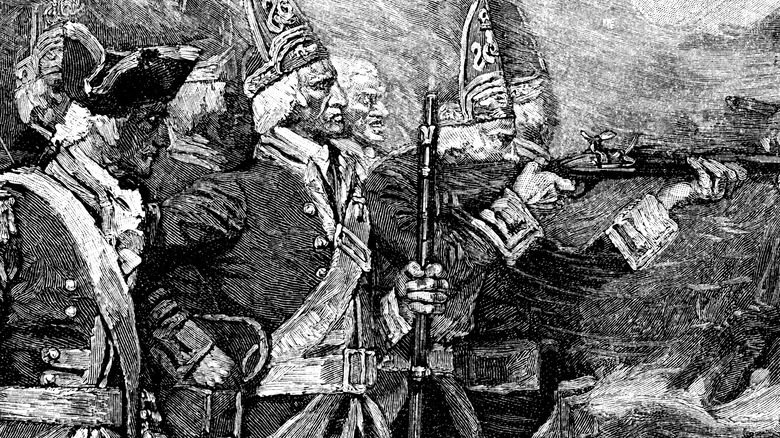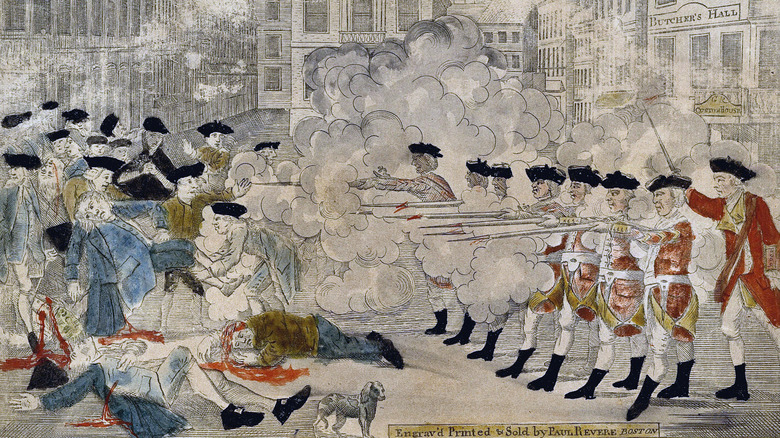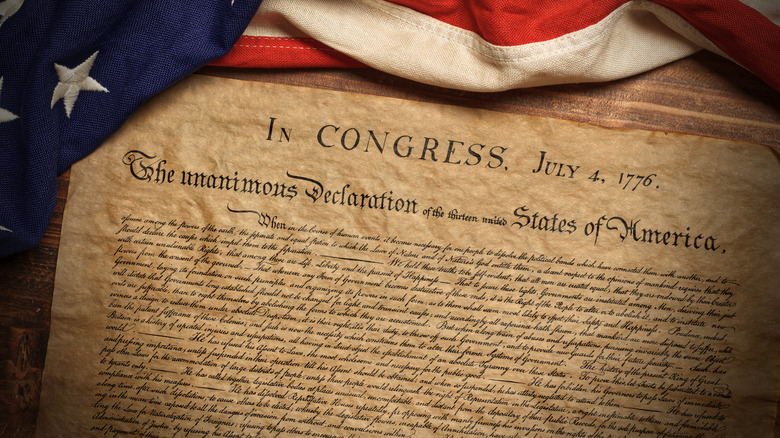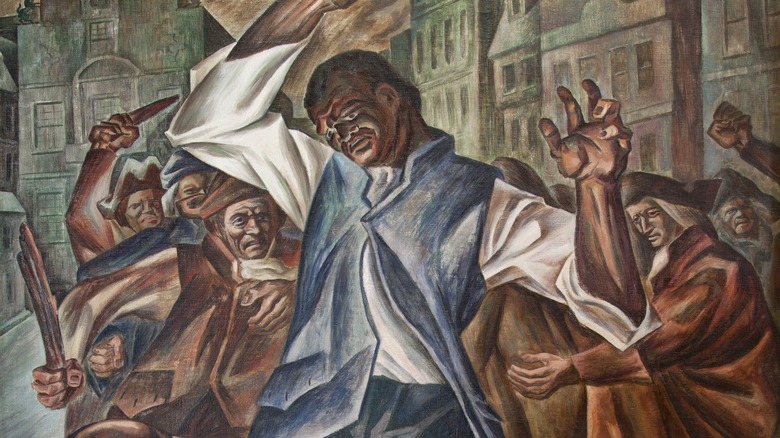What Was The Boston Massacre And Why Did It Happen?
The Boston Massacre is one of those events in U.S. history that, like the similarly-named Boston Tea Party or the Battle of Gettysburg, most Americans only understand in the outline, if at all, now that we aren't expecting a pop quiz about it next week.The March 5, 1770 confrontation was a key moment in the leadup to the Revolutionary War, a sort of microcosm of simmering tensions between the American colonists and their British enforcers. The colonists used the event as a rallying cry for independence, while the British pointed to it as evidence that the colonists were an incorrigible bunch who needed more discipline.
Some 250 years later, the specific outline of events remains in dispute. Further, whether the colonists were innocent victims or the aggressors, or both or neither, is also a topic of continuing discussion by students of history.
Here is the truth of the Boston Massacre.
Who is to blame for the Boston Massacre?
By March of 1770, tensions between the American colonists and their British governors were boiling to the surface, particularly in the port city of Boston, according to History. Even as the colonists complained of being taxed without being given representation, the British sent a heavy contingent of troops — 2,000 of them — to keep peace in the city. Sometimes, there were violent altercations between the two sides. Vandalism of property belonging to loyalists was not uncommon, nor were brawls between colonists and soldiers.
On the evening of March 5, a lone British soldier — Private Hugh White — was stationed at the city's Custom House, when he was surrounded by angry colonists who verbally abused him. Eventually, White struck a colonist with the butt of his weapon, enraging the crowd further. White called out for backup, and more soldiers took up defensive positions. Meanwhile, the colonists continued to pelt the soldiers with clubs and sticks.
What happened next remains unclear, two and a half centuries later. Did a British commander give the order to shoot? Did a soldier slip on the icy ground and accidentally fire his weapon? Regardless of what escalated things, shots soon rang out. When all was said and done, a number of colonists were dead, and more were wounded.
Why was the Boston Massacre important?
To certain independence-minded colonists, such as John Hancock, Samuel Adams, and Paul Revere, the Boston Massacre was an example of British oppressors shamelessly murdering unarmed civilians. At least, that's how they presented it to other colonists, according to History, hoping to stir up anti-British sentiment that would eventually lead to independence.
"Let all America join in one common prayer to heaven that the inhuman, unprovoked murders of the fifth of March, 1770, planned by [a British commander], and a knot of treacherous knaves in Boston, and executed by the cruel hand of [another British commander] and his sanguinary coadjutors, may ever stand in history without a parallel," Hancock would later say, via Revolutionary War and Beyond.
Indeed, the Boston Massacre did lead to American independence, albeit indirectly. It would be six more years before the Continental Congress would convene in Philadelphia to hammer out the Declaration of Independence, which itself took place almost a year after the Revolutionary War started. In the time between the Boston Massacre and the Declaration of Independence, however, were other events, such as the Boston Tea Party, that today exist within the long chain of events that led up to America finally being freed from British rule in 1783.
How many people died in the Boston Massacre?
According to Hobart Public Schools, five people, all colonists, died in the Boston Massacre. Rope maker Samuel Gray and James Caldwell, a mate on a colonial ship, were among those killed instantly. Samuel Maverick, a teenager, died of his injuries the next morning, and Patrick Carr held on for two more weeks before he died.
In addition to the five deaths, six colonists were also injured. One of them, according to Revolutionary Characters, was Christopher Monk, who lived with the injuries he sustained in the Massacre for a decade, before ultimately dying of them.
Perhaps the most famous of the deaths at the Boston Massacre was that of Crispus Attucks, the fifth man who died at the scene. According to the University of Missouri-Kansas City Law School, Attucks, a Black laborer — he may or may not have been a free or escaped slave — was the first to die in the attack, taking two bullets to the chest.
A century after Attucks' death, as the Civil War was raging, Black abolitionist William Nell honored his forebearer, as Black Past reported: "Ninety-two years ago this day, Crispus Attucks, a colored man ... of his intelligent free will, bore that foremost part in the scene on State Street ... which should never be forgotten by any American patriot," Nell said in 1862.



